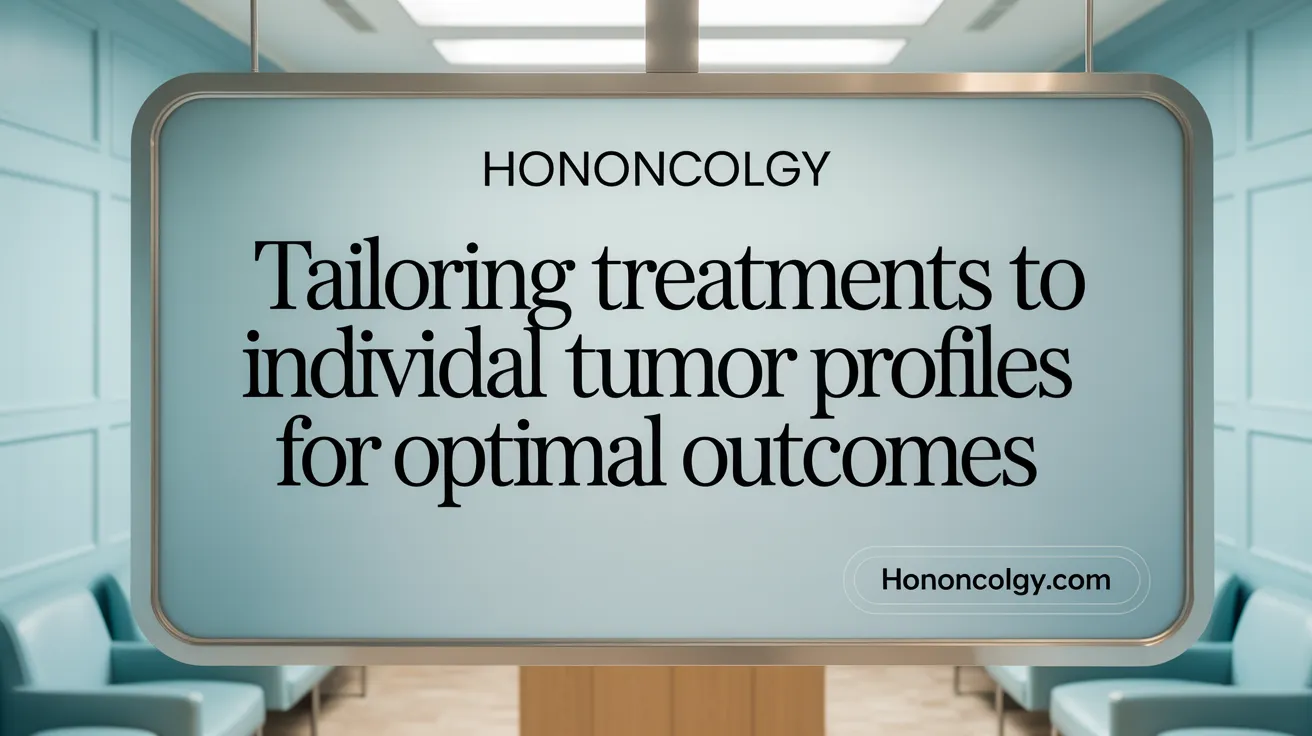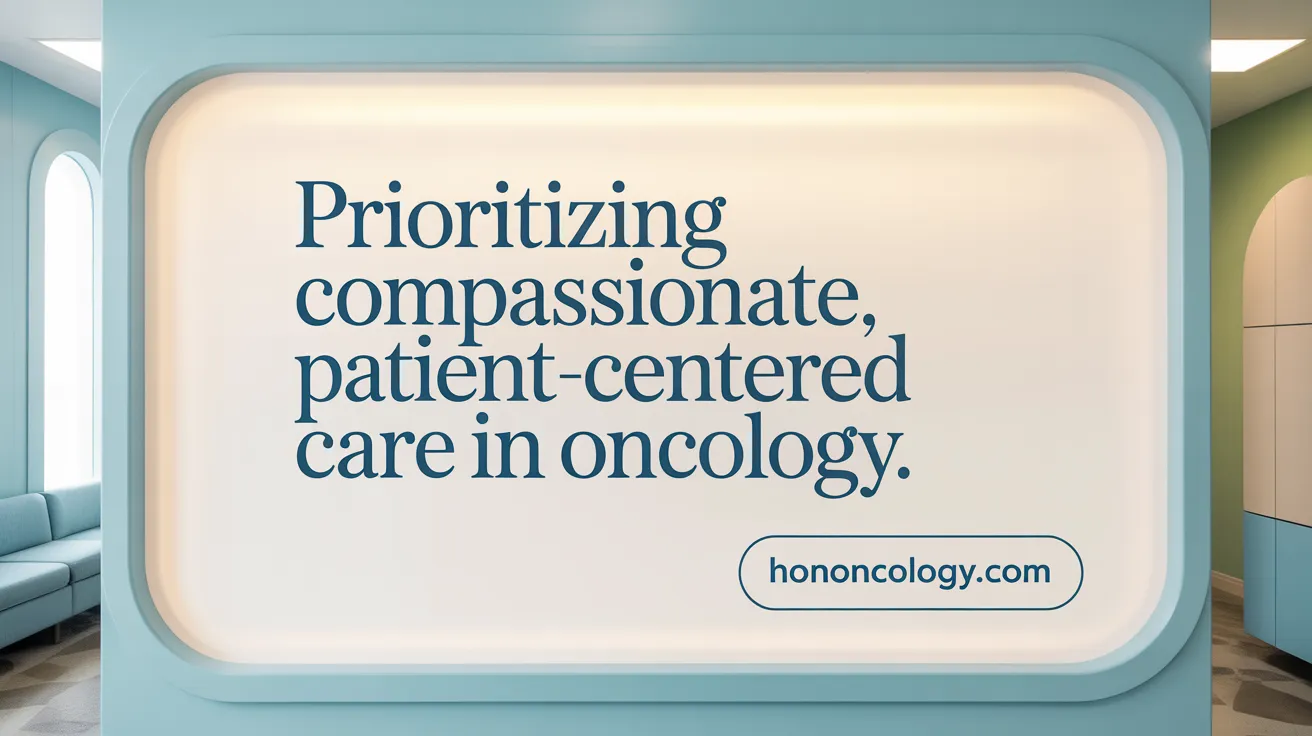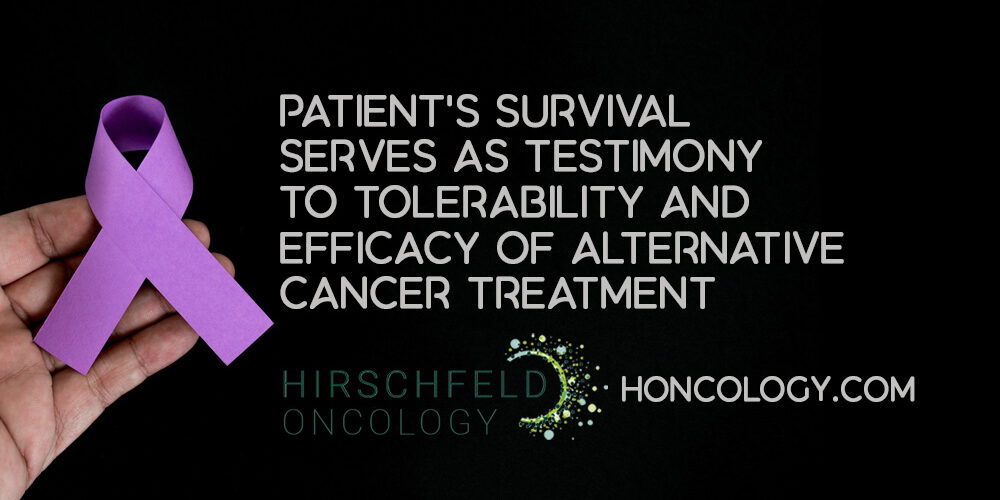Revolutionizing GI Cancer Care Through Genomic Insights
Overview of gastrointestinal (GI) cancer challenges
Gastrointestinal cancers represent some of the most common and deadly cancers globally, with high incidence and mortality rates expected to rise significantly by 2040. These cancers often present with poor prognosis, high recurrence rates, and limited treatment options, creating an urgent need for more effective therapies. Tumor heterogeneity, complex biology, and an immunosuppressive tumor microenvironment further complicate treatment strategies.
The rise of genomic profiling in oncology
Advances in next-generation sequencing (NGS) have propelled comprehensive genomic profiling (CGP) to the forefront of precision oncology. CGP analyzes hundreds of cancer-related genes simultaneously, revealing actionable mutations, genomic signatures such as microsatellite instability (MSI), and tumor mutational burden (TMB). This holistic approach surpasses traditional single-gene testing, identifying a broader array of targets and driving more informed clinical decision-making. Liquid biopsies analyzing circulating tumor DNA (ctDNA) complement tissue testing, offering a non-invasive method for real-time monitoring and adaptive treatment.
Importance of personalized medicine in GI cancers
Personalized medicine based on genomic insights tailors treatment to individual tumor profiles, improving efficacy and minimizing toxicity. Identification of specific mutations, such as HER2 amplifications in gastric cancer or KRAS and BRAF mutations in colorectal cancer, guides targeted therapies and immunotherapy eligibility. This approach fosters the use of novel treatments like antibody-drug conjugates, immune checkpoint inhibitors, and molecularly targeted agents, changing the treatment landscape. Multidisciplinary teams harnessing genomic data enhance patient outcomes and hold promise in overcoming GI cancer's clinical challenges.
Understanding the Promise of Genomic Profiling in GI Cancers
What is Comprehensive Genomic Profiling (CGP) and How is it Done?
Comprehensive Genomic Profiling (CGP) is a cutting-edge method used to analyze hundreds of cancer-related genes in a single test. It uses next-generation sequencing (NGS) technology to examine alterations such as single nucleotide variants, indels, copy number changes, gene fusions, and splice variants. CGP consolidates multiple traditional tests into one, making the process faster, less costly, and more efficient by reducing the need for repeated biopsies.
How Does Next-Generation Sequencing (NGS) Facilitate Genomic Profiling?
NGS is the key technological platform behind CGP. It enables fast, high-throughput sequencing of tumor DNA, providing detailed molecular insights. This allows clinicians to identify genetic changes that drive tumor growth or influence treatment response. NGS can be performed on tumor tissue or through liquid biopsy, analyzing circulating tumor DNA (ctDNA) for less invasive and real-time profiling.
What Are the Key Genomic Alterations in Gastrointestinal Cancers?
GI cancers harbor a variety of important genetic mutations. Common alterations include:
- TP53 mutations: Frequently mutated genes affecting DNA repair and cell cycle control.
- KRAS mutations: Found in approximately 40% of colorectal cancers; they often predict resistance to anti-EGFR therapies. See more on KRAS mutations in colorectal cancer.
- BRAF V600E mutations: Occur in 8-10% of colorectal cancer cases, associated with poorer prognosis but offering targets for specific inhibitors. Related insights in BRAF V600E targeted therapies in colorectal cancer.
- HER2 amplifications/overexpression: Notable in gastric and some colorectal cancers, guiding therapies like trastuzumab. For details, see HER2 overexpression and targeted therapy and trastuzumab for gastric and gastroesophageal cancer.
What Role Do Biomarkers Like MSI, TMB, HER2, KRAS, and BRAF Play?
Biomarkers help tailor treatment options. For example:
- Microsatellite Instability (MSI): MSI-high tumors respond well to immune checkpoint inhibitors.
- Tumor Mutational Burden (TMB): High TMB correlates with better immunotherapy response. Discussed in Tumor Mutational Burden (TMB).
- HER2: Amplification enables use of targeted therapies in gastric and colorectal cancers.
- KRAS and BRAF: Mutations influence the effectiveness of targeted drugs and immunotherapy strategies.
By integrating these molecular features, CGP guides clinicians in precision medicine, offering personalized treatment plans that improve outcomes for GI cancer patients.
Clinical Impact of Genomic Profiling on Treatment Outcomes
How does genomic profiling improve progression-free and overall survival in GI cancers?
Genomic profiling has significantly enhanced treatment outcomes for patients with gastrointestinal (GI) cancers by identifying molecular targets that allow for personalized therapies. Studies, such as the phase II EXACT trial, show that patients receiving targeted treatments based on tumor molecular profiling achieve a median progression-free survival (PFS) of 124 days, compared to 62 days under previous standard treatments. Moreover, median overall survival (OS) from the start of personalized therapy reaches approximately 193 days, signaling broad clinical benefits in advanced GI cancers. Matching therapy to actionable genomic alterations can double survival times compared to unmatched treatments, as highlighted by real-world data on genomic profiling in gastrointestinal malignancies.
What molecular subtypes of gastric and colorectal cancers inform treatment?
Gastric cancers are classified into four main molecular subtypes: Epstein-Barr virus (EBV)-associated, microsatellite instability (MSI), genomically stable, and chromosomal instability. Each subtype harbors unique genetic alterations and differential responses to therapies, such as immune checkpoint inhibitors for MSI-high tumors and HER2-targeted drugs for HER2-positive cases. In colorectal cancer, molecular profiling identifies key mutations including KRAS, BRAF V600E, and PIK3CA. These mutations guide the use of targeted agents like anti-EGFR antibodies and BRAF inhibitors, improving prognosis and tailoring therapy as described in the context of molecular subtypes of colorectal cancer and gastric cancer molecular classification.
How does genomic profiling guide therapy decisions in clinical practice?
Next-generation sequencing (NGS)-based comprehensive genomic profiling (CGP) detects multiple gene alterations simultaneously, identifying actionable targets such as HER2 amplification, KRAS mutation status, and MSI. This precision allows oncologists to select appropriate targeted therapies, adapt immunotherapy choices, and anticipate resistance mechanisms. For example, MSI-high colorectal tumors show better responses to immune checkpoint inhibitors, while HER2 overexpression informs trastuzumab use in gastric cancers. Liquid biopsies complement tissue analysis by enabling real-time monitoring of tumor genomics, enhancing adaptive treatment strategies.
What role do molecular tumor boards and multidisciplinary teams play?
Multidisciplinary molecular tumor boards (MTBs) integrate genomic data with clinical factors to formulate optimized, individualized treatment plans. These boards typically include oncologists, pathologists, genetic counselors, and pharmacologists, who interpret genomic findings and evaluate therapeutic options, including clinical trial eligibility. Evidence suggests that patients managed with MTB recommendations have improved matching to targeted treatments and enhanced clinical outcomes. Collaboration across specialties ensures balanced consideration of tumor biology, patient health, and emerging therapies, advancing precision medicine in GI oncology, as highlighted in resources on genomic profiling in gastrointestinal cancers and comprehensive genomic profiling.
Innovative Therapeutic Strategies Driven by Genomic Insights

Targeted therapies against key mutations (HER2, KRAS, BRAF, FGFR, IDH1)
Genomic profiling of gastrointestinal (GI) cancers has identified crucial mutations such as HER2 mutations in gastric adenocarcinoma, and KRAS mutations in colon cancer, BRAF V600E mutations, FGFR alterations in cholangiocarcinoma and gastric cancer, and IDH1 mutation targeted therapy in intrahepatic cholangiocarcinoma in colorectal and cholangiocarcinoma tumors. Therapies targeting these mutations include trastuzumab for gastric and gastroesophageal cancer and newer agents like T-DXd for HER2-positive cancers, and inhibitors such as KRAS G12C mutation inhibitors (e.g., sotorasib). BRAF V600E mutant tumors respond to combinations of BRAF and MEK inhibitors. Pemigatinib and ivosidenib target FGFR2 and IDH1 alterations respectively, demonstrating the potential for precise, mutation-directed treatment.
Immunotherapy approaches including immune checkpoint inhibitors
Immunotherapy, particularly immune checkpoint inhibitors targeting PD-1/PD-L1, has transformed treatment for subgroups of GI cancers, especially those with MSI-high or mismatch repair deficiency. Agents like pembrolizumab and nivolumab are effective in biomarker-defined patients, including advanced gastric, colorectal, and esophageal cancers. Emerging immune checkpoints such as TIGIT, TIM-3, and VISTA are being explored for therapeutic blockade, aiming to enhance anti-tumor immunity in resistant or immune-suppressive tumor microenvironment (TME) contexts.
Emerging modalities such as antibody-drug conjugates (ADCs) and bispecific immunotherapies
ADCs represent a novel class combining targeted therapy with chemotherapy, delivering cytotoxic drugs directly to cancer cells to limit systemic toxicity. ADCs targeting proteins such as Claudin 18.2 (CLDN18.2) are advancing in clinical trials for GI cancers. Bispecific immunotherapies, designed to engage two immune targets like PD-1/TIGIT simultaneously, are showing promise by boosting immune responses while reducing side effects. These advances reflect a precision medicine approach integrating molecular targeting with modulation of the immune system.
New agents targeting tumor microenvironment and metabolic pathways
Innovative treatments also focus on modulating the tumor microenvironment (TME), including targeting Cancer-associated fibroblasts, immune suppressor cells, and metabolic reprogramming that supports tumor growth. Strategies aim to disrupt immunosuppressive signals within the TME or inhibit altered metabolic pathways, such as glycolysis and glutamine metabolism, to sensitize tumors to therapy. These novel therapies complement genomic-driven approaches, addressing resistance and improving efficacy.
Together, these genomic insights and therapeutic innovations forge a path toward personalized and effective treatment strategies for gastrointestinal cancers.
Leveraging Liquid Biopsies and Real-time Genomic Monitoring

Utility of circulating tumor DNA (ctDNA) and liquid biopsy
Liquid biopsy, which includes analysis of circulating tumor DNA (ctDNA), is a minimally invasive method that extracts molecular information from a blood sample rather than traditional tissue biopsies. Its capability to detect tumor-specific genomic alterations enables real-time tracking of cancer's genetic landscape, especially in gastrointestinal (GI) cancers.
Benefits for monitoring tumor evolution and treatment resistance
One major advantage of liquid biopsies is their ability to capture tumor heterogeneity and dynamic genetic changes as tumors evolve or develop drug resistance. This facilitates the identification of emerging mutations that confer resistance to current targeted therapies, enabling timely modification of treatment plans (genomic profiling in gastrointestinal malignancies).
Potential to reduce invasive procedures and provide rapid insights
Because liquid biopsy requires only a blood draw, it markedly reduces risks and discomfort associated with tissue biopsies, which may be challenging in advanced GI cancers or when tumors are difficult to access. Moreover, the turnaround time for ctDNA results is typically faster, providing clinicians with rapid insights to inform decision-making (comprehensive genomic profiling in oncology).
Applications in adaptive and personalized therapy adjustments
Liquid biopsy supports personalized oncology by allowing repeated genomic profiling over the course of treatment. This adaptive approach helps in monitoring minimal residual disease, detecting early relapse, and guiding adaptive changes in targeted therapies or immunotherapies tailored specifically to the current tumor molecular profile (liquid biopsy for tumor monitoring).
Overall, liquid biopsy is transforming GI cancer management by enabling a real-time, comprehensive, and less invasive strategy for genomic profiling and therapeutic guidance (blood-based molecular profiling advantages).
Overcoming Challenges in Implementing Genomic Profiling
What are the barriers to genomic profiling in cancer care?
Despite genomic profiling's proven benefits in guiding targeted therapies and improving outcomes in gastrointestinal and other cancers, several barriers hinder its widespread use. Cost remains a significant hurdle, as advanced next-generation sequencing tests can be expensive, limiting accessibility especially in developing regions. Regional disparities also exist, with some areas lacking sufficient infrastructure or access to laboratories equipped for comprehensive genomic profiling (CGP).
Additionally, insurance coverage can be inconsistent. Although research shows that costs during first-line therapy do not increase significantly with CGP testing, reimbursement policies vary widely, affecting patient and physician willingness to pursue testing. Another challenge is logistical complexity and variable quality in genomic testing workflows, leading to suboptimal biomarker testing rates (Genomic profiling underused in advanced cancer, no added cost burden).
Why is clinician education and standardized testing important?
Clinician education plays a vital role in increasing adoption of genomic profiling. Physicians must understand the clinical utility of CGP and how to interpret and apply results for personalized treatment. Multidisciplinary tumor boards that include molecular pathologists can enhance treatment decision-making based on genomic data (Usefulness of Comprehensive Genomic Profiling in).
Standardized workflows and validated testing protocols reduce turnaround times and improve result reliability. For example, unified approaches like those used in the BALLETT study have demonstrated high success rates and better integration of CGP into routine care, facilitating timely therapeutic decisions.
How do insurance coverage and healthcare infrastructure impact genomic profiling?
Insurance coverage is pivotal but not the sole barrier. Some studies indicate that even with available coverage, logistical issues and lack of streamlined clinical pathways limit testing uptake. Robust healthcare infrastructure, including molecular pathology labs and bioinformatics support, is essential to handle the complexity of CGP and ensure accurate, timely reporting (Comprehensive genomic profiling: key challenges and promising solutions.
Efforts to decentralize testing, improve laboratory standardization, and integrate bioinformatics platforms reduce barriers related to infrastructure. Liquid biopsy techniques also offer less invasive, faster options, enhancing accessibility when tissue samples are limited (Liquid biopsy for tumor monitoring, liquid biopsies for mutation detection and monitoring.
What strategies can increase biomarker testing rates and improve access?
To improve biomarker testing rates, multi-pronged strategies are needed:
- Education and Training: Ensuring oncologists and related clinicians are informed about advances in CGP and its clinical impact (Clinician education for genomic testing.
- Streamlining Clinical Workflows: Simplifying testing processes and enhancing communication between laboratories and clinicians (Streamlined workflows for CGP.
- National and Institutional Guidelines: Promoting standardized protocols for genomic testing and incorporating CGP early in diagnostic pathways (Genomic profiling advancements).
- Improving Insurance and Reimbursement Policies: Advocating for consistent coverage policies to make testing affordable (Insurance coverage and testing challenges.
- Investment in Infrastructure: Supporting development of molecular diagnostic facilities and bioinformatics resources (Access to molecular pathology services.
- Use of Multidisciplinary Molecular Tumor Boards: Facilitating personalized treatment decisions based on genomic data (National molecular tumor board for CGP.
Collectively, these efforts can help overcome current challenges and ensure genomic profiling fulfills its promise in improving cancer care outcomes (Precision medicine in cancer treatment).
Personalized Treatment Planning at Hirschfeld Oncology

Who leads the medical team at Hirschfeld Oncology?
At Hirschfeld Oncology, the medical team is led by Dr. Azriel Hirschfeld, a highly experienced hematologist and oncologist with over 20 years specializing in cancer treatment. A graduate of Albert Einstein College of Medicine and board-certified in Medical Oncology by the American Board of Medical Specialties, Dr. Hirschfeld is renowned for his patient-centered approach. His expertise spans gastrointestinal cancers—including pancreatic, colon, gastric, and hepatobiliary malignancies, as well as ovarian and triple-negative breast cancers. Located in Bronx, NY, Hirschfeld Oncology under his leadership actively integrates advanced drug delivery systems: nanoparticles and hydrogels and clinical trials, ensuring care is both scientifically advanced and compassionate.
How does Hirschfeld Oncology develop treatment plans for cancer patients?
Treatment planning at Hirschfeld Oncology follows a multidisciplinary team approach involving oncologists, radiologists, pathologists, and other specialists. The team comprehensively reviews each patient’s medical history, tumor profile, and overall health status to design personalized treatments.
Genomic profiling plays a central role in this process, providing detailed molecular insights into tumor subtypes and actionable mutations. This allows the team to select targeted therapies for cancer and immunotherapies that complement standard treatments like chemotherapy, radiotherapy, and surgery. Moreover, patient preferences and life considerations, such as fertility and pregnancy planning, are integrated to form holistic care strategies.
Continuous monitoring through imaging, liquid biopsy, and biomarker analysis enables dynamic treatment adjustments, optimizing efficacy and minimizing side effects. Hirschfeld Oncology emphasizes combining evidence-based standard therapies with innovative, precision oncology approaches to maximize patient outcomes in gastrointestinal cancers and beyond.
Compassionate and Patient-Centered Care at Hirschfeld Oncology

How does Hirschfeld Oncology ensure compassionate cancer treatment?
At Hirschfeld Oncology, compassionate cancer treatment is central to our care philosophy. We prioritize building strong communication channels with patients, ensuring they feel heard, respected, and fully informed throughout their journey. Our medical team, led by Dr. Azriel Hirschfeld, dedicates time to genuinely understand each patient's unique circumstances and concerns, fostering trust and openness.
Communication and trust building with patients
Effective communication is foundational. We provide clear explanations of diagnoses, treatment options, and expected outcomes, allowing patients to make informed decisions. Active listening and empathetic interactions help alleviate patient anxiety and promote confidence in their care team. Learn more about the importance of communication and trust building with patients in precision oncology and personalized treatment.
Holistic approach including psychosocial support
Our care extends beyond medical treatment; we adopt a holistic approach that includes psychosocial support. Recognizing the emotional and psychological challenges cancer patients face, we facilitate access to counseling and community resources. This comprehensive support helps patients maintain quality of life and cope better with treatment stresses. Explore the impact of holistic approach including psychosocial support in improving outcomes in gastrointestinal and other cancers.
Staff training to maintain empathy and responsiveness
Continuous staff training is a priority to uphold empathy and responsiveness in patient interactions. Our personnel are equipped with skills to recognize diverse patient needs and cultural sensitivities, which enhances personalized care delivery and emotional support. See how staff training to maintain empathy and responsiveness contributes to patient-centered care improvement.
Patient advocacy throughout cancer care journey
We actively advocate for patients by coordinating multidisciplinary care, addressing barriers, and ensuring patients’ voices guide treatment decisions. This advocacy ensures personalized, patient-centered care that adapts to evolving needs, reflecting Hirschfeld Oncology’s commitment to compassion and excellence. Understand patient advocacy’s role in care with this resource on patient advocacy throughout cancer care journey.
Additionally, the understanding of comprehensive genomic profiling and targeted therapies is key to enhancing treatment personalization at facilities like Hirschfeld Oncology.
Future Directions: Pushing Boundaries in GI Cancer Genomics and Therapy

What innovative strategies does Hirschfeld Oncology use to redefine cancer care?
Hirschfeld Oncology innovates cancer treatment by combining targeted therapies, immunotherapy, and personalized medicine grounded in precise molecular diagnostics, including genomic profiling in gastrointestinal cancer. They focus on tumor biomarkers like HE4 and CEA to detect and monitor cancer with high precision, allowing highly tailored treatment plans. Advanced drug delivery systems: nanoparticles and hydrogels, including nanoparticles and receptor-specific antibodies, improve treatment specificity while minimizing side effects.
Additionally, Hirschfeld Oncology integrates cutting-edge therapies such as immune checkpoint inhibitors and CAR-T cell therapies. They also explore natural agents like antimicrobial peptides for their anticancer potential. This multipronged approach aims to enhance treatment effectiveness and durability by addressing tumor heterogeneity and resistance.
Emerging immune checkpoints and immunomodulatory targets
The landscape of immunotherapy in GI cancers evolves with new immune checkpoints such as TIGIT, VISTA, GITR, STING, and TIM-3 gaining attention. These molecules modulate immune responses within the tumor microenvironment (TME), representing promising targets to overcome immunosuppression and boost anti-tumor immunity. Ongoing trials investigating dual checkpoint blockade or combined therapies are paving the way for more personalized immunomodulatory strategies (emerging immune checkpoints in gastrointestinal oncology).
Role of artificial intelligence and bioinformatics in data interpretation
AI and machine learning tools enhance interpretation of complex genomic data from next-generation sequencing. They help identify actionable mutations, predict therapeutic responses, and optimize treatment plans. Integration of multi-omic datasets through advanced bioinformatics pipelines expedites clinical decision-making, enabling real-time adaptation of therapies based on tumor evolution and resistance mechanisms.
Next-generation drug delivery systems including nanoparticles and hydrogels
Innovative drug delivery platforms like polymeric hydrogels and nanoparticles improve site-specific targeting in GI cancers. Stimuli-responsive hydrogels release drugs in response to tumor microenvironment cues, enhancing drug concentration at disease sites and minimizing systemic toxicity. Nanocarriers facilitate co-delivery of drugs and genes, immunostimulation, or phototherapy activation, thereby boosting therapeutic effectiveness.
Ongoing clinical trials and potential breakthroughs guided by genomics
Genomic profiling now drives numerous clinical trials testing novel agents in GI cancers. Trials such as those evaluating KRAS G12C mutation inhibitors (e.g., sotorasib), bispecific immunotherapies, antibody-drug conjugates, and STING agonists exemplify this precision approach. Several trials report encouraging survival benefits when combining immunotherapy with chemotherapy or targeted agents, signaling a potential paradigm shift in treatment standards.
| Topic | Description | Example/Impact |
|---|---|---|
| Hirschfeld Oncology Strategies | Integrates biomarkers, targeted drugs, immunotherapy, and nanodelivery for tailored care | Enhanced specificity and treatment durability (Innovative strategies in gastrointestinal cancer) |
| Immune Checkpoints | New targets like TIGIT, VISTA, TIM-3 modulate tumor immunity | Trials exploring combo checkpoint blockade (Immune checkpoints in GI oncology |
| AI & Bioinformatics | Use ML for mutation prediction, therapy selection, and adaptive strategies | Accelerated, personalized treatment decisions (AI in genomic data interpretation) |
| Drug Delivery Innovations | Hydrogels and nanoparticles enable site-specific and controlled release | Reduced off-target effects and better efficacy (Hydrogels in cancer therapy) |
| Genomically Guided Trials | Novel agents matched to tumor mutations tested in clinical studies | Improved survival and new combo therapies (Genomic profiling in GI cancers |
Genomic Profiling: A Cornerstone for Personalized GI Cancer Care
Transforming Gastrointestinal Cancer Treatment
Genomic profiling has revolutionized GI cancer care by enabling precision medicine, shifting treatment from generic chemotherapy to therapies tailored to individual tumor genetics. Through comprehensive genomic profiling (CGP) and next-generation sequencing (NGS), specific mutations such as HER2, KRAS, BRAF, and MSI status are identified, guiding targeted therapies and immunotherapies that improve survival and treatment efficacy.
Emphasizing Multidisciplinary and Patient-Centered Care
Optimizing outcomes requires a multidisciplinary approach involving oncologists, pathologists, surgeons, and molecular tumor boards. This collaboration ensures personalized treatment plans considering genetic data, clinical history, and patient preferences, fostering adaptive therapy management and improved disease control.
Hirschfeld Oncology's Commitment to Innovation
At Hirschfeld Oncology, integrating cutting-edge genomic technologies with compassionate, patient-focused care underpins our approach. We prioritize early comprehensive genomic testing to inform precise treatment selection and encourage participation in clinical trials for emerging targeted therapies.
Looking Ahead: Enhanced Outcomes and Access
Future advances promise broader genomic test accessibility and faster turnaround, liquid biopsy innovations, and novel targeted agents. These strides will further personalize GI cancer treatment, reduce toxicities, and enhance quality of life, marking genomic profiling as essential for next-generation oncology care.





.png)


.png)
.png)




